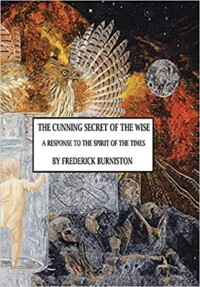Title: The Cunning Secret of the Wise: A Response to the Spirit of the Times
Author: Frederick Burniston
Publisher: XlibrisUK
ISBN: 9781664115996
Genre: Fiction
Pages: 344
Reviewed by: David Allen
Pacific Book Review
The Cunning Secret of the Wise is an ambitious and grand synthesis of multiple voices, viewpoints, and traditions both philosophic and spiritual. The author gifts the reader with a historical and intellectual legacy culled from thousands of years’ worth of inquiry and insight. Author Frederick Burniston is a scholar who is generous in his outlook, taking the best and leaving the rest.
This bacchanal of intellectual delight begins with the philosophers of ancient Greece. The Platonists (and Neo-Platonists who followed), posited the existence of ideal categories and types that superseded the merely physical. The belief in the existence of these categories paved the way for the doctrines of the major Abrahamic religions–Judaism, Christianity, and Islam. These religions each gave rise to mystical offshoots including the Qabalah, Christian mysticism, and Sufism. Carl Jung countered Sigmund Freud’s sexuality-based drive theory with his analytic psychology and collective unconscious, which derived from and gave rise to further insights in mythology, as in the celebrated work of comparative mythologist Joseph Campbell.
Many names, many faces of God and wisdom. One of the many virtues of Frederick Burniston’s book is its ability to coalesce and converge schools of thought and ways of thinking that have been considered antithetical. As Burniston explains, the purpose of his book is “…to deepen the foundations and extend the range of Jung’s theoria to meet the challenges of the spirit of the times…” There are many critics of the spirit of our time, but few as ably and deeply equipped to reconcile seemingly opposed traditions as Burniston.
The spirit of our time has been criticized as a ‘secular mood.’ The Traditionalist School, hostile to all forms of psychoanalysis (which of course would include Freud’s and Jung’s) is represented in the life and work of Rene Gueron, who developed an ‘uncompromising critique of the secular mood.’ Burniston is somehow able to combine Gueron’s approach with the work of Jung, who actually based a great deal of his work on symbols and visions of Christian saints and medieval alchemists. This is an impressive achievement.
Similarly, the author describes the vision mysticism of Ibn ‘Arabi (1165-1240 A.D.) as a bridge between Jung and the Islamic world. This too is an ambitious project and if anyone will succeed at it, it must be Burniston.
Burniston’s remarkable scholarship and grasp of his sources takes him far and wide. He serves up useful and creative interpretations of Friedrich Nietzsche, the German philosopher whose pronouncements paved the way for existentialism and the critique of religious systems. Burniston’s book even offers relevant commentary on the hexagrams of the I Ching, a source of prophesy and prediction for thousands of years.
The Cunning Secret of the Wise has a great deal to recommend it. Frederick Burniston is a terrific writer and teacher and those unfamiliar with recondite philosophy and spiritualism will find engaging introductions here.


